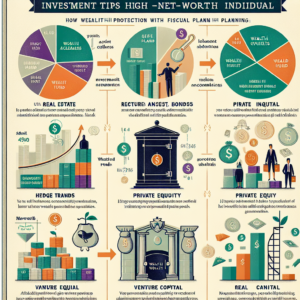
Insurance Industry News: Keeping Up with the Latest Updates
Introduction
The insurance industry is constantly evolving, with new trends, technologies, and regulations shaping the way insurance companies operate. Staying informed about the latest news in the insurance sector is crucial for both insurance professionals and policyholders. In this article, we will explore some of the most recent developments in the insurance industry and discuss their potential impact.
1. Digital Transformation: Embracing Technological Advancements
The insurance industry is undergoing a significant digital transformation, driven by advancements in technology. Insurers are increasingly adopting digital platforms, artificial intelligence (AI), and machine learning to streamline their operations, enhance customer experiences, and improve risk assessment. With digitalization, insurance companies can now offer personalized policies, expedite claims processing, and leverage data analytics to make more informed decisions.
2. Insurtech Startups: Disrupting Traditional Insurance Models
The rise of insurtech startups is revolutionizing the insurance industry by challenging traditional business models. These startups leverage technology to offer innovative insurance solutions, such as peer-to-peer insurance, on-demand coverage, and usage-based policies. Insurtech companies are also focusing on improving customer engagement through user-friendly mobile apps and online platforms. As these startups gain traction, traditional insurers are adapting their strategies to stay competitive in this rapidly changing landscape.
3. Cyber Insurance: Addressing the Growing Cybersecurity Threats
As cyber threats continue to increase in frequency and sophistication, the demand for cyber insurance has skyrocketed. Insurance companies are developing specialized cyber insurance policies to protect businesses and individuals against data breaches, ransomware attacks, and other cyber risks. With the evolving regulatory landscape and the implementation of data protection laws, cyber insurance is becoming a necessity for organizations across various industries.
4. Climate Change and Natural Disasters: Impact on Insurance
The insurance industry is closely monitoring the impact of climate change and the rise in natural disasters. Extreme weather events, such as hurricanes, wildfires, and floods, are causing significant financial losses for insurers. As a result, insurance companies are reassessing their risk models, increasing premiums in high-risk areas, and exploring innovative solutions to mitigate climate-related risks. Additionally, insurers are working with governments and organizations to promote resilience and develop sustainable insurance practices.
5. Regulatory Changes: Adapting to New Policies and Compliance Requirements
Insurance regulations are constantly evolving, and staying compliant is essential for insurers. Recent regulatory changes include stricter data protection laws, updates to insurance contract laws, and increased scrutiny on anti-money laundering and fraud prevention. Insurance companies must invest in robust compliance systems and ensure they stay updated with the latest regulatory requirements to avoid penalties and maintain consumer trust.
Conclusion
The insurance industry is experiencing a wave of transformation, driven by technological advancements, changing customer expectations, and evolving regulatory landscapes. Insurers must stay informed about the latest industry news to adapt their strategies, embrace digitalization, and navigate emerging risks. Whether it’s keeping up with insurtech startups, addressing cybersecurity threats, or preparing for the impact of climate change, staying ahead of the curve is crucial for insurance professionals and policyholders alike.





